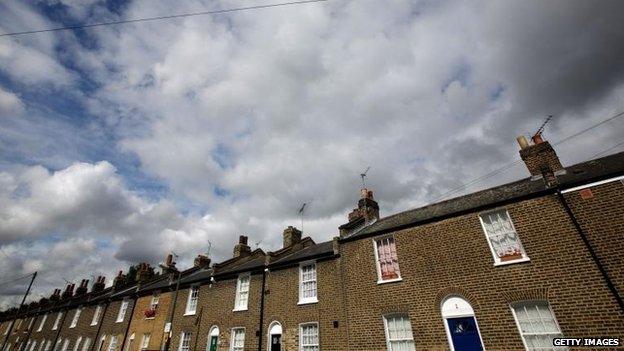Can the Bank of England curb the housing bubble?
- Published
- comments

It is a big day for the Bank of England, the first time its new Financial Policy Committee is expected to exercise powers to stem overheating in a part of the economy that could destabilise banks and the financial system.
As you all know (you ought to by now, for gawd's sake), the bubblicious market of concern to the Bank's boffins and regulators is the housing market in London and the South East, where prices have been rising at dangerously fast rates (circa 20% per annum in the metropolis).
Here's a little film I made yesterday about what is going on in London and what the Bank of England is likely to do about it.
The dilemma for the Bank is how to snuff out dangerous price rises in London without killing off the green shoots of a much milder housing-market recovery in the rest of the UK - in that a gently rising housing market in most of this country would not be such a bad thing.
What I would expect the Bank to announce is:
1) a proposed formalisation of the voluntary restrictions announced by Lloyds and RBS, viz a prohibition on mortgages greater than four times household income for loans of more than £500,000 - because in most of the country outside London and the south, there are relatively few houses worth more than that.
2) a tightening up of the so-called affordability test banks apply to anyone requesting a mortgage, to ensure they can keep up the repayments in the event mortgage rates rise to 7%.
There is an outside chance banks will also be asked to hold more capital as a protection against possible losses on new mortgages that are a high multiple of income or a high proportion of a home's value.
Now this may take some of the steam out of the London market. But it is important to make two caveats.
First, this is new ground for the Bank of England and the UK, so we can't be certain what the precise impact of these mortgage curbs will be.
Second, much of the London market is being driven by cash buyers - and the Bank has no influence over their behaviour.
One final thought.
Much of the boom in the London market is being driven by buy-to-let purchases - as Huw van Steenis of Morgan Stanley has pointed out.
Yesterday I spoke to Lord Turner, former chairman of the defunct Financial Services Authority. He thinks there is a case for special measures by the Bank of England to take the steam out of buy-to-let.